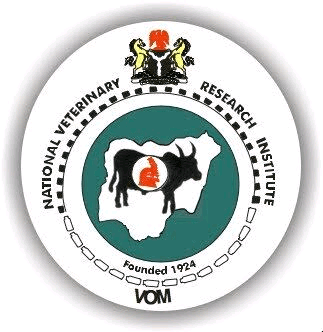From Atiku Sarki, Abuja
The Diector and Chief Executive Officer of the National Veterinary Research Institute (NVRI) Vom, Dr. Maryam Muhammad, has highlighted the significant impact of the European Union (EU)-supported Livestock Disease Surveillance Knowledge Integration (LIDISKI) project on developing and sustaining national animal disease surveillance in Nigeria. She noted that the project also provides a foundation for future policy development and research initiatives in the country.
Launched in 2020, following approval in 2019, the LIDISKI project aimed to enhance the resilience and livelihoods of smallholder livestock farmers, who rely heavily on livestock for both nutrition and financial stability. The project was implemented in the states of Kano, Plateau, and Bauchi.
Speaking at the LIDISKI project closeout meeting in Abuja on Thursday, Dr. Maryam highlighted the significant achievements of the initiative. Between 2019 and 2024, over 3.9 million doses of PPR vaccine and 7.78 million doses of Newcastle Disease (ND) vaccine were distributed to rural communities in the three states.
A survey conducted during the project found that 92 farmers were interviewed, with 91 reporting a noticeable increase in their income as a direct result of LIDISKI activities. Dr. Maryam explained, “Farmers confirmed improvements in their overall livelihoods, attributing these changes to better disease control, increased access to vaccines, and improved animal health practices. These results demonstrate the project’s success in translating scientific research into tangible solutions that directly benefit local communities.”
The NVRI CEO also emphasized the project’s role in building capacity within the veterinary sector. Through LIDISKI, three MSc students and five PhD students were trained, while 138 Community Animal Health Workers (CAHWs) and 34 field veterinarians received specialized training.
In terms of knowledge dissemination, Dr. Maryam reported that 18 publications on PPR and ND were authored, contributing to the global body of knowledge. Additionally, the project organized 7 webinars, 4 conferences, and 8 on-site and virtual training sessions for various research staff. “Capacity building was a key focus of this project, and these efforts have made a lasting impact on both national and international research communities,” she said.
Dr. Maryam also acknowledged the contributions of various partners involved in the project, including the Federal Ministry of Agriculture and Food Security (FMAFS), the French Agriculture Research Centre for International Development (CIRAD), the Italian Health Authority and Research Organization for Animal Health and Food Safety of Venezie (IZSVe), the International Knowledge and Development Research and Education (IKDRE), and the EU, along with the state governments of Kano, Plateau, and Bauchi. She also thanked local communities for their active participation in supporting the initiative.
Dr. Leila Ben Amor Mathieu, Head of Human Development at the EU Delegation to Nigeria and ECOWAS, and Dr. Simon Kihu, WOAH Program Officer for Veterinary Workforce Development, both praised the efforts of all stakeholders involved in making the project a success. They reaffirmed their commitment to supporting better veterinary service systems, not only in Nigeria but globally.
In his remarks, the Minister of State for Agriculture and Food Security, Senator Dr. Aliyu Abdullahi, who was represented by his Special Assistant, Mr. Aminu Oluwafisayo, commended the collaborative efforts of all stakeholders. He noted that the project had not only strengthened the animal health system but had also contributed to the “Renewed Hope” agenda of President Bola Ahmed Tinubu’s administration to reform the agricultural sector. The Minister emphasized that the LIDISKI project had brought remarkable achievements in both livestock development and food security across the country.
The LIDISKI project was launched in 2020 to address two critical livestock diseases—Peste des Petits Ruminants (PPR) and Newcastle Disease (ND)—through enhanced surveillance and control efforts in Nigeria. The project’s success in Kano, Plateau, and Bauchi during its pilot phase serves as a model for nationwide implementation.


